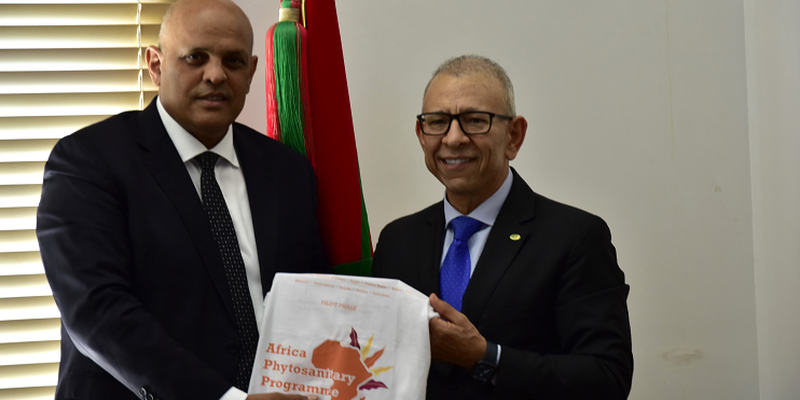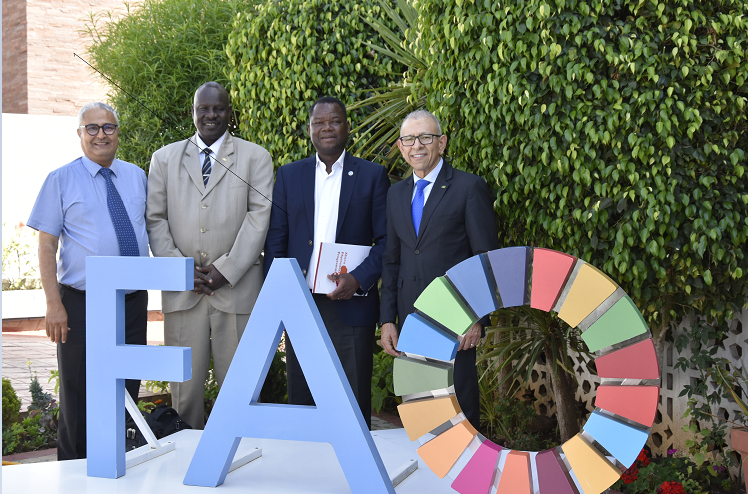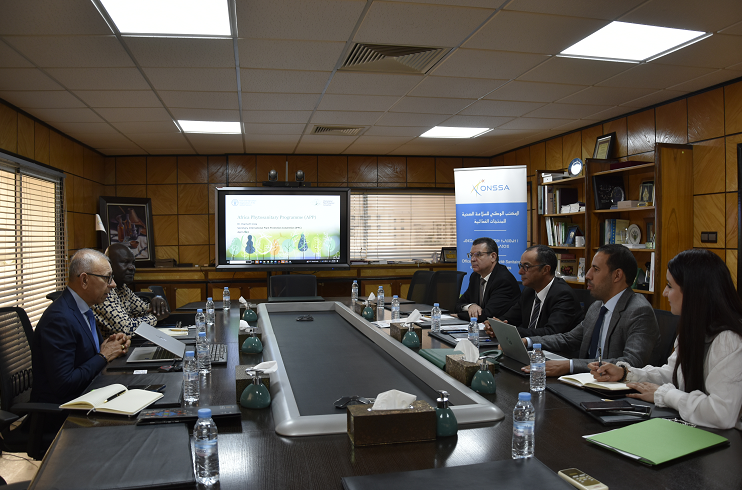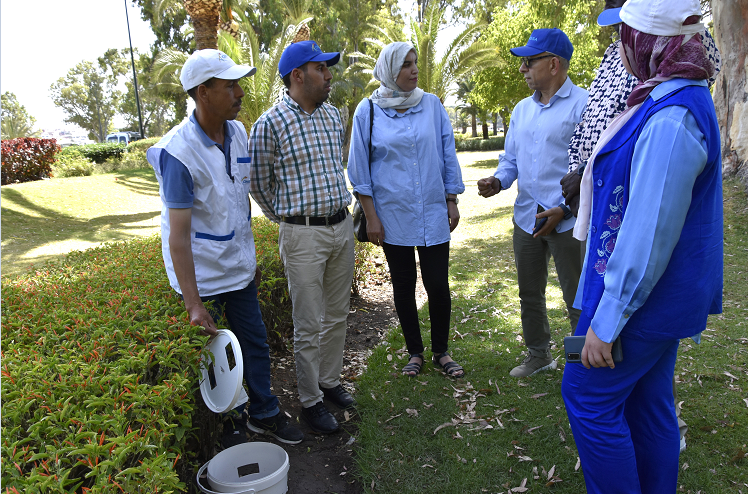Africa Phytosanitary Programme to boost Morocco’s fight against plant pests
Posted on Tue, 09 Jul 2024, 07:02

© FAO/Anita Tibasaaga
Rabat, 9 July 2024. The Ministry of Agriculture, Maritime Fisheries, Rural Development and Forests and the National Office of Food Safety (ONSSA) in Morocco, mandated to ensure increased agricultural production for food security, livelihoods of farmers, and export, have expressed their support for the Africa Phytosanitary Programme (APP). They view APP as an innovative approach to pest prevention and developing capacity of national phytosanitary personnel to effectively manage plant pests, through using scientific evidence, modern technology, and advanced software and tools for pest surveillance, detection, and reporting. The heads of both institutions pledged to support APP implementation in Morocco, collaborating with the International Plant Protection Convention (IPPC) Secretariat, the Food and Agriculture Organization of the United Nations (FAO) and regional and national partners and stakeholders. They made the commitments during separate meetings with Osama El-Lissy, the IPPC Secretary, during his official working visit to Morocco from 23-26 June 2024.
Morocco is among 11 African countries in the pilot phase of APP, an initiative to fortify the technical skills of phytosanitary inspectors and technicians, to effectively monitor, detect and control pests before they cause crop loss and economic damage. APP also aims to position national plant protection organizations to prepare for, respond to and recover from the impact of pests on major food and income crops. The APP is an initiative of the IPPC, in collaboration with FAO, the African Union Department of Agriculture, Rural Development, Blue Economy & Sustainable Environment and the United States Department of Agriculture (USDA).
“Capacity building is key and is the most important part of the programme [APP]. We need well-trained people to monitor and prevent pests and diseases. I assure you of the full support of the ministry to ensure the programme’s positive impact”, said Redoune Arrach, Secretary General, Ministry of Agriculture, Maritime Fisheries, Rural Development and Forests in Morocco.
He commended the “smart” approach in selecting countries, national priority pests and advancing science and technology to manage plant pests. He invited the IPPC to collaborate with Morocco to train and involve youth in agricultural vocational institutions in implementing APP.


© FAO/Anita Tibasaaga
Abdallah Janati, ONSSA General Director said APP would complement Morocco's national pest surveillance and diagnostics programmes. With 400 phytosanitary officers in 12 regions countrywide, Morocco boasts a strong workforce.
“This field [capacity building for plant protection] is very important for Morocco to ensure mass crop production and continued export of agricultural commodities”, he said.
El-Lissy emphasized that NPPOs will better prevent pests, especially considering climate change which increases their proliferation.
“The IPPC supports contracting parties like Morocco, to protect plants, agricultural products, and other natural resources from pests and to facilitate safe international trade of plant products. APP will contribute to Africa’s resilience to climate change and pest attacks on agriculture”, he said.
El-Lissy also met Jean Senahoun and Abdelhak Laiti, FAO Representative and Assistant FAO Representative (Programme) respectively in Morocco. They expressed FAO’s unreserved support towards APP implementation in Morocco.
How APP works
Through APP, the IPPC provides countries with survey guidelines to monitor and detect five priority pests per country, as well as hand-held computers comprising a mobile application for field data collection. Countries survey existing or potential pests affecting or threatening plant production in their territories. They record and can access field data offline or online via a cloud-based platform hosted on the IPPC website. Data analysis can then be done in real-time, generating credible information for decision-making on integrated pest control measures and evidence of pest-free production and export of plant-based products. APP also empowers countries to implement the International Standards for Phytosanitary Measures (ISPMs) by ensuring their compliance with pest reporting, pest-free production and safe trade.
Through its NPPO, Morocco has developed an APP action plan, focusing on improving surveillance for Xylella fastidiosa and Red Palm Weevil (RPW); training ONSSA’s phytosanitary inspectors on better surveillance techniques for the two pests; using digital surveillance systems to improve survey and identification/diagnostic protocols and establishing a national and regional surveillance network on Xylella fastidiosa and RPW.
Secretary El-Lissy also met ONSSA’s phytosanitary officers based in Tangier, focusing on managing and preventing RPW, an invasive pest affecting date, coconut and ornamental palm production, present in most of the Mediterranean countries. RPW was first discovered in Morocco in December 2008 at Tangier port.
Dris Barik, Head of the Plant Protection Division at ONSSA and member of the IPPC's Commission on Phytosanitary Measures (CPM) Bureau representing Near East and North Africa noted that APP would build the country’s capacity to monitor any future pests, in addition to the five commercial and food security priority pests.

© FAO/Anita Tibasaaga
Related information

